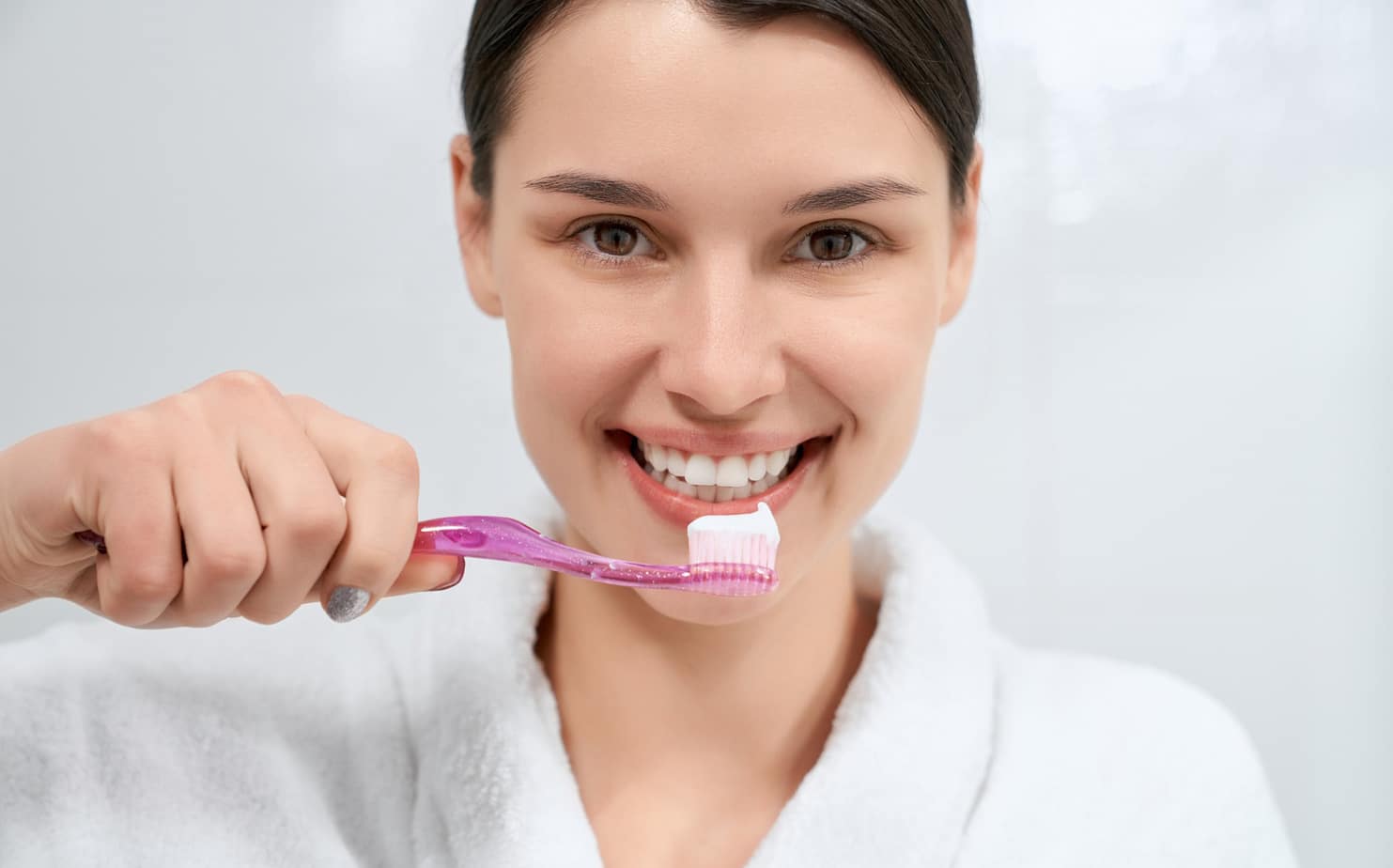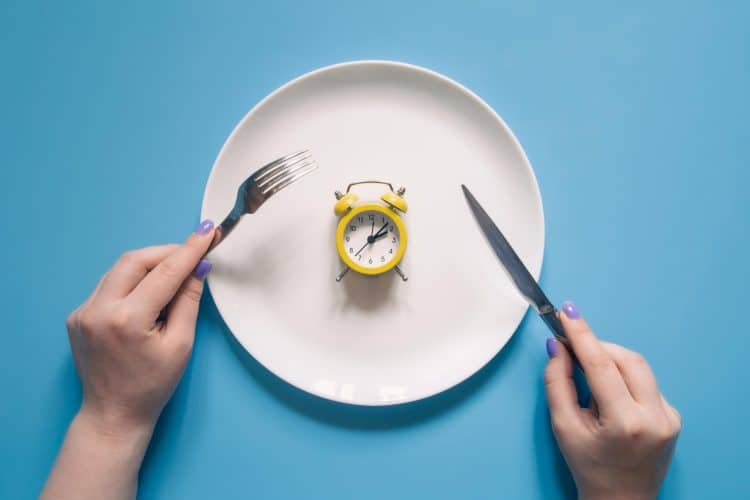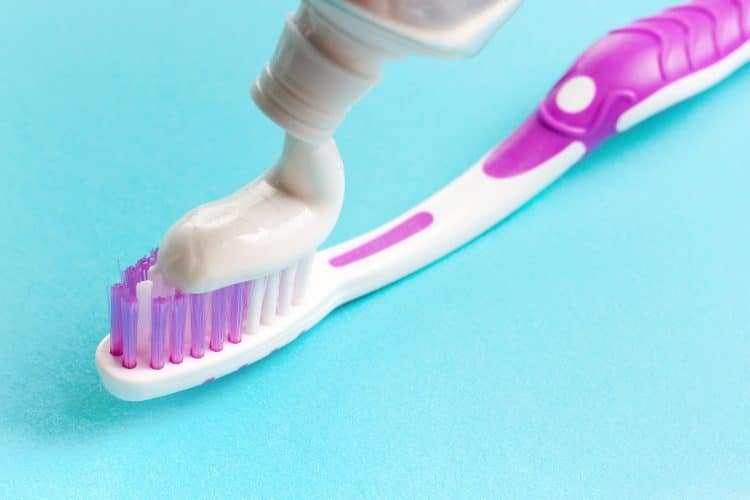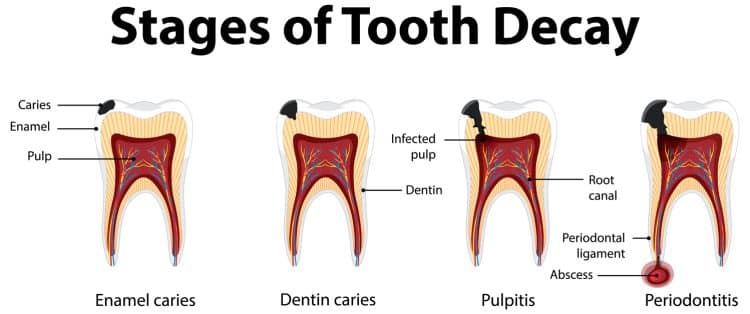Intermittent fasting can help maintain a healthy body weight, fix hormonal imbalances, lessen oxidative stress, and even keep your heart healthy. However, achieving desired results demands strict adherence to the fasting rules.
One must learn what’s allowed and what’s not while fasting. While finding dietary restrictions is easy, one might face difficulties learning about permitted activities. One such activity is brushing your teeth.
We know brushing twice daily for two minutes is enough to keep foul odor, cavities, and many other oral concerns at bay. [1] But, as toothpaste is a mixture of multiple chemicals, one might wonder if brushing teeth could break their fast. This article will bring clarity to this concern.
Will This Break Your Fast?
Find out if coffee, tea, sweeteners, and other drinks break your fast based on your specific fasting goals.
Check What Breaks My Fast →What To Avoid During a Fasting Window?
Intermittent fasting aims to push your body into ketosis so that the body is using stored fat instead of carbohydrates as a fuel source. Ketones are simplified compounds made up of carbon, oxygen, and hydrogen and are released by the liver as the body breaks down the stored fat.
Now, to achieve ketosis, you must:
- Fast for longer than 72 hours
- Follow a very low-carbohydrate and high-fat diet for multiple days and weeks [2]
For those following intermittent fasting, carbohydrates are huge troublemakers because they can lead to high insulin levels that disturb ketone production.
Consuming carbohydrates leads to the body breaking down the food into sugar, which increases the blood sugar level as it enters the blood. High blood sugar leads to an insulin spike. [3]
The past molecular-level study of ketones revealed that ketone production reduces when insulin is high and increases when glucagon is high. [4]
So, when insulin levels are high, and ketones are low, the body fails to enter ketosis, and the goal of intermittent fasting is not achieved. There are two distinct schools of thought regarding calorie consumption during fasting.
Many people only consume water or unsweetened tea or coffee while fasting. This belief is known as the “clean fast” and ensures that the body receives no calories throughout the fasting period.
The other group follows the ‘dirty fast’ practice, wherein they consume small servings of high-fat items like butter or coconut oil. Few even consume lemon or lime juice during the fasting window. Many even advocate chewing sugarless gum or using zero-calorie sweeteners.
According to intermittent fasting principles, you should not consume any calories during the fasting period. So, technically, your fast breaks as soon as you take calories during the fasting window.
But will the fast break if you brush your teeth? Let’s learn more about it.
Does Toothpaste Have Any Calories That Can Break a Fast?
Toothpaste has many ingredients, including surfactants, humectants, abrasive agents, thickening agents, solvents, buffers, flavors, and fluorides.
Out of all these ingredients, you should be cautious about sugar and carbohydrates, as these can disrupt your fast.
Most commercial toothpaste doesn’t have sugar in any form. The mild sweetness is achieved using artificial sweeteners. Mostly, sorbitol and saccharin are used as sweetening agents in toothpaste.
Sorbitol is a low-calorie sugar alcohol, while saccharin is a zero-calorie sweetener. The calorie count of sorbitol is two-thirds of table sugar, while saccharin has zero calories and carbohydrates.
If we strictly follow the principles of IF, brushing with sorbitol-based toothpaste breaks your fast because it has calories. But brushing with toothpaste containing saccharin is safe. Learn more about the sweeteners that can break a fast here.
But, practically speaking, we don’t swallow toothpaste while brushing; we spit it. Also, we only need a pea amount of toothpaste per brushing session. In this small amount, there won’t be enough sorbitol to spike your blood insulin and disturb ketones production. So, it will hardly have any impact on your fasting. It concludes that brushing, as long as you’re not swallowing the toothpaste, won’t break your fast.
Should You Avoid Brushing Your Teeth While Fasting?
Brushing is more than a daily routine. It promotes oral health, improving your lifestyle. Brushing twice a day is recommended. Those who don’t follow this practice have a 40% higher chance of getting a dental cavity. [5]
Although intermittent fasting has many benefits, there are some potential downsides, such as waking up with a dry mouth or bad breath.
As one continues fasting and the body remains in ketosis for a long time, various kinds of ketones are generated. Acetone is a byproduct of ketosis and diffuses into the hollow spaces of the lungs. It is then exhaled, and it doesn’t smell good. Hence, bad breath is often observed in people practicing fasting. [6]
Fasting also has a huge impact on salivary flow and production. Saliva is made up of calcium, phosphate, protein, and nitrite, and its flow is reduced by 50% in people observing a fast. [7]
The decrease in saliva production during fasting can cause dry mouth, promoting the accumulation of acids and plaque on teeth, potentially leading to tooth decay and gum disease.
Brushing our teeth at least twice a day is important to maintain good oral hygiene. Therefore, it is not advisable to skip brushing while fasting.
Will Intermittent Fasting Have Any Impact on Oral Hygiene?
Even though intermittent fasting is a century-old practice, it has gained tremendous popularity recently as people became aware of its numerous health benefits.
While most people know intermittent fasting helps reduce weight and improves gut health, heart rate, insulin level, and hormone balance, only a few know it also improves oral health. When done right, intermittent fasting can help you eliminate many dental problems. Here is how:
Fewer Tooth Decays
During non-fasting periods, it is common to consume multiple meals and snacks throughout the day without brushing, rinsing, or flossing. This practice leads to poor oral health. [8]
There are multiple intermittent fasting methods, such as the 16/8, 5/2, eat-stop-eat, and alternate-day fasting. In the 16/8 method, one observes a fast for 16 hours daily and eats only in an eight-hour window.
The 5:2 fasting method involves eating normally five days a week and fasting for two consecutive days.
In the eat-stop-eat fasting method, people fast for 24 hours for one or two days a week. Mostly, people skip dinner and don’t consume calories until the next dinner.
Irrespective of the method, the goal of intermittent fasting is to control the calorie intake by not eating or drinking calories for extended periods.
In the absence of frequent snacking, a salivary biochemical process occurs, resulting in a decrease in glucose levels in the mouth. Reduced glucose means a lower possibility of decay.
Less Plaque Build-up
Those observing clean fasting will not drink anything besides water. These fasters often keep rinsing their mouth with water. This frequent rinsing prevents plaque build-up inside the mouth.
Balanced Mouth pH
Balancing mouth pH is very important if one seeks improved oral health. The ideal mouth pH is 7.0, which is neutral. The pH level shifts towards the acidic side as bacteria metabolize using the energy of the ingested food when consuming too much acidic food throughout the day. Fasting encourages individuals to control their acidic food consumption for a more extended period. Hence, mouth pH is maintained.
Do’s and Don’ts of Brushing While Fasting
Skipping brushing your teeth is not recommended. Although toothpaste doesn’t have sugar, it might have low-calorie sweeteners. This can be a matter of concern for many. So, here is a list of acceptable do’s and don’ts for brushing during fasting.
Do’s
- Pay attention to the ingredient list and determine which sweeteners are used. As mentioned above, saccharin is a zero-calorie sweetener. So, better to go with toothpaste containing saccharin.
- If saccharin-based toothpaste is unavailable or the ingredient list is incomplete, go with a sweetener-free product. As the calories of toothpaste only come from sweeteners, skipping this ingredient completely is a great way to eliminate the stress of breaking fast unintentionally.
Don’ts
- Don’t skip brushing, as it’s crucial to maintain oral hygiene to reduce the risk of oral cavities and gum diseases.
- Don’t try to replace toothpaste with mouthwash during fasting. Mouthwash has a high percentage of alcohol (ethanol). [9] Many leading mouthwash brands like Listerine, Cepacol, and many more have alcohol in their mouthwashes. The alcohol content in Listerine is 26.9 percent, while it’s 14.5 percent in Cepacol. 10]
FAQs
1. Can you use homemade toothpaste during fasting?
You can make your own homemade toothpaste with baking soda, herbal oils, and sage leaves. Baking soda has great antibacterial properties, is effective in killing germs, and is a safe ingredient to consume. It is an effective abrasive to use for dental hygiene.
2. How many calories do commercial mouthwashes have?
Most commercial mouthwashes contain between 10 and 20 calories per 3 mL (0.1 fl oz). So, with a single mouthwash, you add up to 30-60 calories to your daily calorie intake. While fasting, these added calories can jeopardize your intermittent fasting goals.
3. Is oil pulling allowed during fasting?
You can avoid brushing entirely and use the traditional method of oil pulling to maintain excellent oral hygiene. In this oral cleaning method, you must move some oil inside your mouth for 5 to 20 minutes.
4. Which herbs are safe for teeth cleaning during fasting?
Neem, or Azadirachta indica, is a safe-to-use herb that people can use during fasting. The herb has great medicinal properties and is well-known for its amazing anti-cariogenic, anti-bacterial, anti-helminthic, anti-diabetic, anti-oxidant, astringent, anti-viral, cytotoxic, and anti-inflammatory activity.
5. Can you use herbal mouthwash for a dental cleaning?
As commercial mouthwashes are full of alcohol that contains calories, they are not recommended during fasting. But you shouldn’t replace commercial chlorhexidine-based mouthwashes with herbal mouthwashes, as they are not as effective.
Final Thoughts
Intermittent fasting has come a long way and is widely adopted. It offers several health benefits. However, achieving desired results demands adherence to practices that promote ketosis.
While you prepare a list of dos and don’ts, we recommend not excluding brushing twice a day during fasting. One must continue brushing twice a day for good oral health and hygiene.
Breaking a fast while brushing is possible only if you swallow toothpaste. A pea-sized amount of toothpaste is recommended for adults per brushing session. Take the appropriate amount of toothpaste, rinse your mouth, and spit out the foam. By combining this with intermittent fasting, you can maintain excellent overall health.
References
Fitness Volt is committed to providing our readers with science-based information. We use only credible and peer-reviewed sources to support the information we share in our articles.
- Brushing your teeth: Does timing matter? (2021, October 7). Mayo Clinic.
- Ketones and Human Performance – PubMed. (n.d.). PubMed.
- Carbohydrates and Blood Sugar. (2013, August 5). The Nutrition Source.
- Cantrell, C. B., & Mohiuddin, S. S. (2022, April 28). Biochemistry, Ketone Metabolism – StatPearls – NCBI Bookshelf. Biochemistry, Ketone Metabolism – StatPearls – NCBI Bookshelf.
- [Clinical relevance of tooth brushing in relation to dental caries] – PubMed. (2010, July 1). PubMed.
- Anderson, J. C. (2015, November 2). Measuring breath acetone for monitoring fat loss: Review. PubMed Central (PMC).
- Effects of fasting on saliva composition – PubMed. (1991, December 1). PubMed.
- Are alcohol containing mouthwashes safe? – PubMed. (2009, November 28). PubMed.
- Breath alcohol values following mouthwash use – PubMed. (1993, December 1). PubMed.
Tip: If you're signed in to Google, tap Follow.













